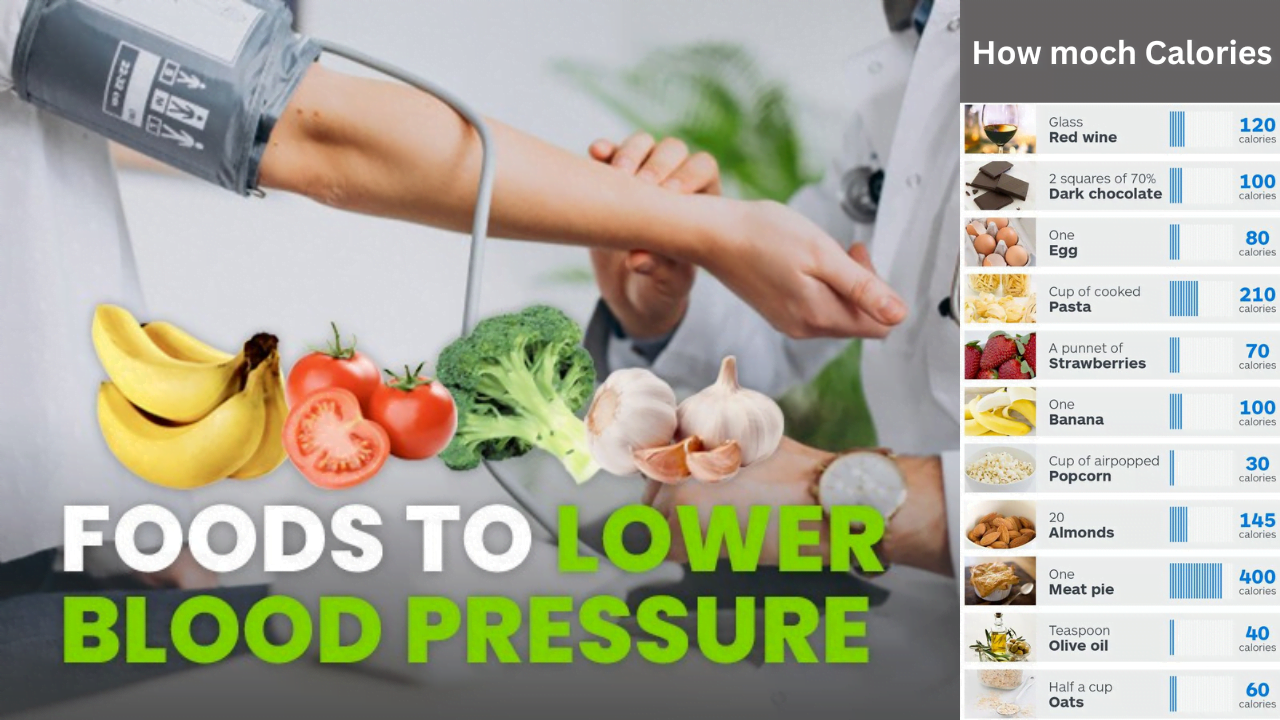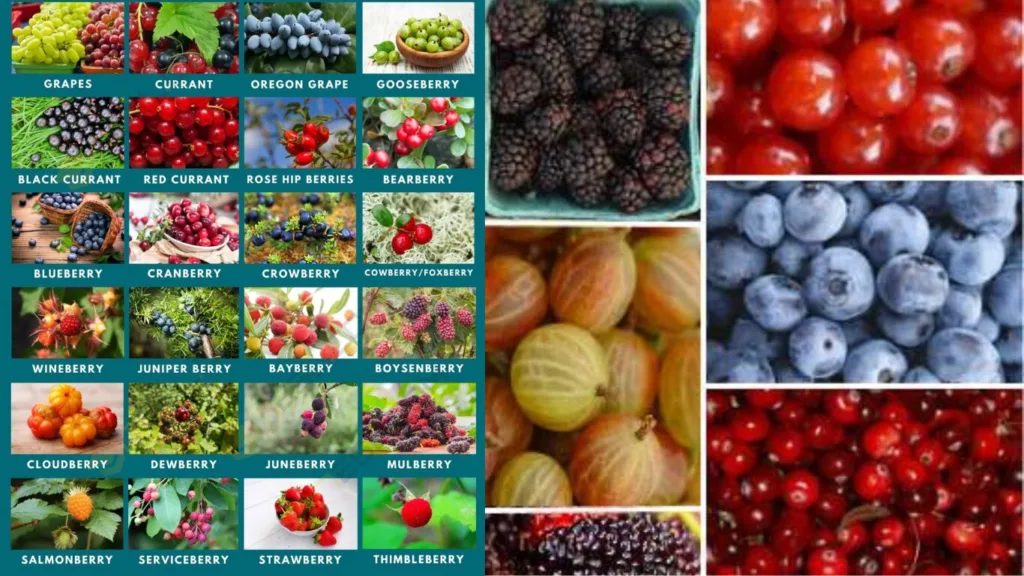
We can live a healthy life if we know the naturally lower BP process. Discover the power of nature in managing your blood pressure. Our guide to your health, with 7 best foods that naturally lower blood pressure. Learn about effective strategies and lifestyle changes to improve your heart health.
Introduction:
Table of Contents
Preface Drink to a trip of holistic health! In this companion, we’ll explore the world of nutrition and its impact on blood pressure. Discover the seven crucial foods that can naturally support a healthier cardiovascular system. So, let’s claw into the heart of the matter and embrace a life that promotes well-being.
7 Foods that Naturally Lower BP
Embark on a culinary adventure with these seven hustler foods that are scientifically proven to lower blood pressure naturally.
1. Avocado Bliss
Avocados, rich in potassium, take center stage. Learn how incorporating this delicate delight into your diet can contribute to healthier blood pressure.
Avocado that Naturally Lower BP:
- Rich in Potassium:
Avocados are a great source of potassium, a mineral known for its role in maintaining healthy blood pressure levels. Potassium plays a crucial role in maintaining a balance of sodium levels within the body, thereby lowering the likelihood of developing hypertension. - Heart-Healthy Monounsaturated Fats:
Avocados are loaded with monounsaturated fats, which can contribute to heart health. These fats are known to have a positive impact on cholesterol levels, potentially lowering the risk of high blood pressure. - Dietary Fiber Content:
Avocados are high in dietary fiber, aiding in digestion and promoting a feeling of fullness. The fiber content may contribute to weight management, another factor linked to blood pressure regulation. - Vitamins and Minerals:
Avocados contain essential vitamins and minerals, including vitamin K, vitamin E, and magnesium. These nutrients play roles in overall cardiovascular health and may indirectly support blood pressure control. - Antioxidant Properties:
The presence of antioxidants in avocados, such as lutein and zeaxanthin, may help combat oxidative stress and inflammation, contributing to improved cardiovascular function. - Versatility in Diets:
Avocados offer versatility and can effortlessly be integrated into a wide range of dishes. Their inclusion in a balanced diet can enhance overall nutritional intake, promoting heart health and potentially aiding in blood pressure management. - Mindful Eating Practices:
Incorporating avocados into meals may encourage a more mindful and heart-healthy approach to eating. Pairing avocados with other nutrient-rich foods can contribute to a well-rounded diet that supports blood pressure regulation.
It’s important to note that while avocados can be part of a heart-healthy diet, overall lifestyle choices, including regular physical activity and a balanced diet, play crucial roles in maintaining Naturally Lower BP. People with specific health issues should seek personalized advice from healthcare professionals.
2. Berry Bonanza
Delve into the world of berries, packed with antioxidants. Uncover the secrets of these bitsy prodigies and their part in promoting cardiovascular health.
Berries that Naturally Lower Blood Pressure (BP)

- Rich in Antioxidants:
Berries, such as blueberries, strawberries, and raspberries, are loaded with antioxidants that help combat oxidative stress, promoting cardiovascular health and potentially lowering blood pressure. - High in Anthocyanins:
Anthocyanins, a type of flavonoid abundant in berries, have been linked to improvements in blood pressure regulation. Including a variety of berries in your diet may contribute to these positive effects. - Dietary Fiber Content:
Berries are excellent sources of dietary fiber, promoting satiety and aiding in weight management. Maintaining a healthy weight is associated with lower blood pressure levels. - Vitamin C Boost:
Berries, particularly strawberries and raspberries, are rich in vitamin C. This vitamin has been associated with a reduced risk of hypertension and may contribute to overall cardiovascular well-being. - Low in Sodium and Calories:
Berries are naturally low in sodium and calories, making them a heart-healthy snack option. Choosing low-sodium foods is crucial for maintaining healthy blood pressure levels. - Polyphenol Power:
The polyphenols found in berries have been studied for their potential to improve blood vessel function and reduce blood pressure. Regular consumption may contribute to these positive cardiovascular effects. - Easy to Include in Meals:
Berries are versatile and can be easily added to a variety of meals. Whether in salads, yogurt, or smoothies, incorporating berries into your diet is a flavorful and convenient way to promote heart health. - Hydration Support:
Berries have high water content, contributing to hydration. Proper hydration is essential for overall health, including maintaining optimal blood pressure levels.
It’s essential to remember that while incorporating berries into your diet can be beneficial, lifestyle factors such as a balanced diet, regular exercise, and stress management are also crucial for maintaining healthy blood pressure. People with specific health concerns should consult healthcare professionals for guidance.
3. Leafy Greens
Galore Explore the green area of vegetables. From spinach to kale, discover how these lush flora can be your abettors in maintaining optimal blood pressure.
Leafy Greens and Blood Pressure:
- Rich in Potassium:
Leafy greens, such as spinach and kale, are excellent sources of potassium. Adequate potassium intake helps regulate sodium levels in the body, supporting lower blood pressure. - High in Magnesium:
Leafy greens are also rich in magnesium, a mineral linked to blood pressure regulation. Magnesium helps relax blood vessels, promoting improved blood flow and potentially reducing hypertension. - Abundance of Nitrate:
Certain leafy greens, like arugula and beet greens, contain nitrate. The body converts nitrate into nitric oxide, a compound that dilates blood vessels, contributing to lower blood pressure. - Low Calorie, High Nutrient Density:
Leafy greens are characterized by their low calorie content coupled with a rich concentration of essential nutrients. Their consumption supports overall health and can contribute to weight management, an important factor in blood pressure control. - Rich in Antioxidants:
Antioxidants found in leafy greens, such as vitamin C and beta-carotene, help combat oxidative stress and inflammation, promoting a healthy cardiovascular system. - Dietary Fiber Content:
Leafy greens with high fiber content help with digestion and give a sense of fullness. Including these greens in your diet can contribute to weight maintenance and lower blood pressure. - Versatile Culinary Uses:
Leafy greens are versatile ingredients that can be incorporated into salads, smoothies, stir-fries, and more. Adding them to your meals is an easy way to enhance the nutritional profile of your diet. - Hydration Support:
Leafy greens possesses a notable water content, actively contributing to the body’s hydration levels. Proper hydration is essential for overall health and can positively influence blood pressure levels.
It’s important to note that while leafy greens can be part of a blood pressure-friendly diet, lifestyle factors such as limiting sodium intake, maintaining a healthy weight, and staying physically active are also crucial. People with particular health concerns should seek personalized advice from healthcare professionals.
4. Omega 3 Rich Walnuts
Unlock the eventuality of walnuts and their omega-3-3 adipose acids. Dive into the details of how these nuts can appreciatively impact your heart health.
Incorporating omega-3-rich walnuts into your diet can naturally lower blood pressure. Walnuts are a powerhouse of alpha-linolenic acid (ALA), a type of omega-3 fatty acid that has been linked to cardiovascular health. Studies suggest that ALA may help regulate blood pressure and reduce the risk of hypertension. These heart-healthy nuts also contain antioxidants and anti-inflammatory properties that support overall cardiovascular well-being.
Including a handful of walnuts in your daily meals or snacks is an easy and delicious way to reap the benefits. Whether sprinkled on salads, added to yogurt, or enjoyed as a standalone snack, walnuts provide a satisfying crunch along with the nutritional support your heart needs. As always, it’s advisable for individuals with specific health concerns to consult health care professionals for personalized advice on maintaining a heart-healthy lifestyle.
While all walnuts contain some omega-3 fatty acids, English walnuts (Juglans regia) are particularly known for their relatively higher levels of alpha-linolenic acid (ALA), which is a type of omega-3 fatty acid. If you’re specifically looking for walnuts, rich in omega-3, English walnuts are a suitable choice.
5. Garlic virtuousness
Unleash the power of garlic in regulating blood pressure. Learn about the composites that make garlic a natural and a scrumptious remedy for hypertension.
Garlic, renowned for its culinary charm, also harbors potent properties that may contribute to naturally lower BP. Allicin, a key component in garlic, can relax blood vessels, facilitating improved blood flow and potentially reducing hypertension. Incorporating garlic into your diet, whether raw, cooked, or as a supplement, can be a flavorful way to harness its cardiovascular benefits.
To naturally lower bp with garlic, consider adding it to various dishes, such as sauces, soups, or roasted vegetables. Additionally, garlic supplements are available for those who may not enjoy its taste. However, it’s crucial to consult with healthcare professionals, as garlic can interact with certain medications. Embracing this aromatic herb as part of a balanced diet may offer not only a savory addition to meals, but also potential support for a healthier heart.
6. Oatmeal Elevation
Discover the heart-healthy benefits of oats. Dive into the world of answerable fiber and how oatmeal can be a succulent addition to your blood pressure operation plan.
7. Banana Magic
Peel back the layers of banana benefits. From potassium to other essential nutrients, understand why this fruit is a fantastic addition to a blood pressure-friendly diet.
Constantly Asked Questions Related to Naturally Lower BP
Q. 1. Are these foods effective for everyone?
Ans. Absolutely! While individual responses may vary, incorporating these foods into your diet generally promotes better heart health.
Q. 2. How snappily can I see results?
Ans. Results vary, but thickness is crucial. Aim for a balanced diet, regular exercise, and stress operation for optimal issues.
Q. 3. Can I replace drug with these foods?
Ans. Consistently advise your health care professional before framing expressive fluctuations. These foods round a healthy life, but may not replace specified drugs.
Q. 4. How important of these foods should I consume daily?
Ans. temperance is crucial. Aim for a well-balanced diet that includes a variety of these foods to support overall heart health.
Q. 5. Are there any special victuals to escape better blood pressure?
Ans. Limiting sodium input and reducing reused foods can further enhance the benefits of these blood pressure-friendly foods.
Q. 6. Can children profit from these foods?
Ans. Absolutely! These foods contribute to overall health. Still, always consider individual salutary requirements and consult with a pediatrician if required.
Conclusion
Empower yourself with the knowledge and flavors that support a heart-healthy life. By incorporating these seven foods into your diurnal routine and making aware choices, you can naturally lower blood pressure and pave the way to a healthier you.




